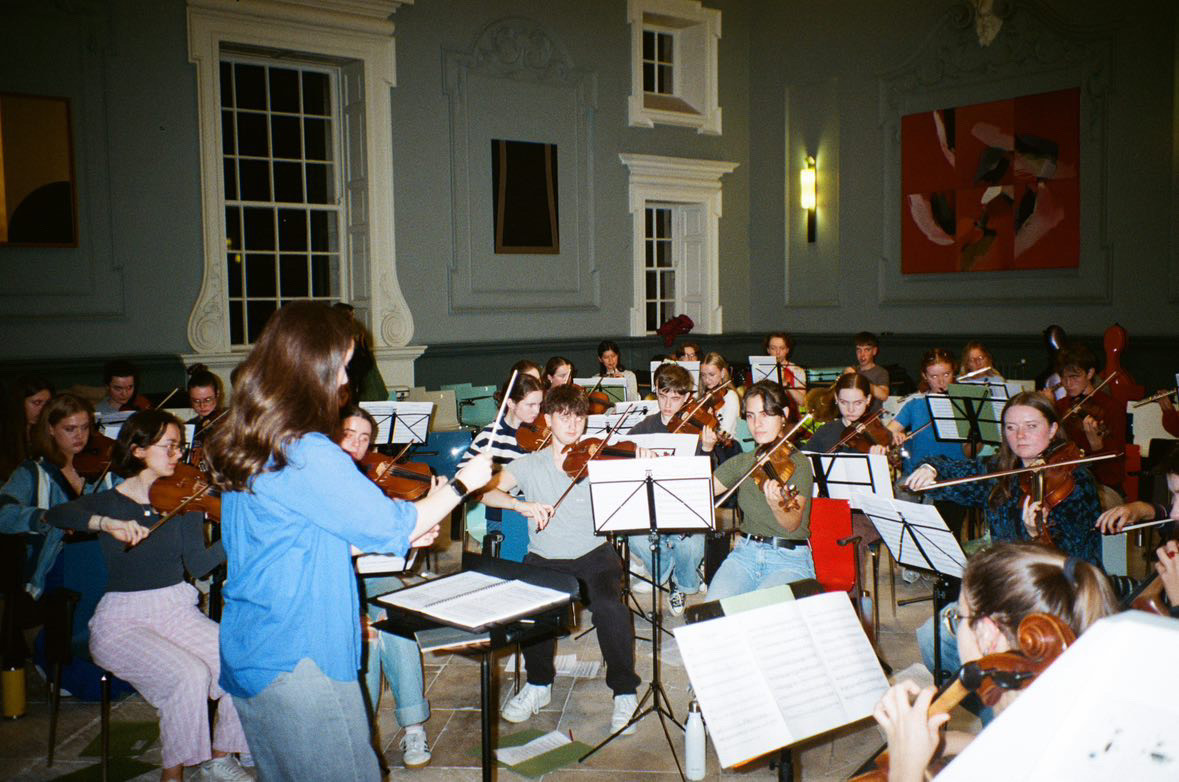
You don’t have to be the most avid listener of classical music to be aware of Trinity Orchestra. Most Trinity students can recall when they collaborated with Hozier himself as he sang a rendition of Pink Floyd’s ‘Dark Side of the Moon’ or have seen a set at one of the many music festivals they have performed at, like the recent Forbidden Fruit or All Together Now. They may seem to be on the smaller side – at least compared to other societies – but this has made very little difference on their cultural impact. Trinity Orchestra’s ability to cultivate its small but mighty sphere of international influence and conquer a wide field of genres is worth highlighting.
In the student consciousness at Trinity, the passionate force of its orchestra continues to make its way across a field of majors and interests. PPE second year student Serena Cavanaugh has always been acutely aware of their influence. “I’ve always found them cool since their performance with Hozier, as well as opening for Rod Stewart this year. I’ve followed them on Instagram for a while,” she says. Second year Political Science and Social Policy student Amelia Sarmiento adds, “They are really talented and I find it hard to imagine myself being able to do what they do.” The very established reputation of Trinity Orchestra speaks for itself.
To delve further into the inner workings of this musical force, I spoke with Jennifer Sheil – the auditor of Trinity Orchestra – and asked her about their cultural influence and scale. Their society may have only 92 members, but their impact is far from miniscule.
“In the vast world of Trinity and its societies, the orchestral society may come across as quite a niche. When you think of a society of 92 people, it seems like a small number in relation to the 22,000 students of Trinity,” she explained. “However, when you take into account the musical training, skill, dedication, and commitment behind every single musician in our orchestra, the number 92 starts to feel like a phenomenon…for a group of over 80 extremely talented musicians to gather every single Tuesday to play some of the most stunning music ever written is quite a miracle in itself.”
Founded in 1989, Trinity Orchestra remains the only entirely student-run orchestra in Ireland. In regards to the importance of this society, Sheil urges that “it is so important that Trinity has an orchestra. There are few places in Dublin that accommodate young classical amateur musicians, especially on a larger symphonic scale…we just want people to have fun and have a reason to keep playing their instruments. We play music for the sake of playing music and all academic or competitive energy is removed. In my opinion, this is rare for the classical music world and I believe it’s down to the fact that everything is completely student-led.”
When it comes to pushing genres, Trinity Orchestra doesn’t stick solely to Bach or Beethoven. Rather, Sheil details their love for “popular music including artists such as Kate Bush, The Cranberries, Queen, Pink Floyd, and the Gorillaz,” saying that “there is nothing more fun than playing songs from your favourite artists with all your friends on some of the biggest festival stages in the country!” Much of this takes place at their festival showcases – plenty more to come in the future. Festival coordinator Kate Mason finds that their “involvement in festivals is one of the core reasons [they] have such a big impact.”
Trinity Orchestra is a musical tour-de-force heading into this new year. With their iconic reputation and lots more to offer, Sheil wants to “engage as many people with Trinity Orchestra as possible!” She implored those interested to keep an eye out for “open recitals, lots of society collaborations, day trips, talks, nights out, and of course lots and lots of concerts!”






